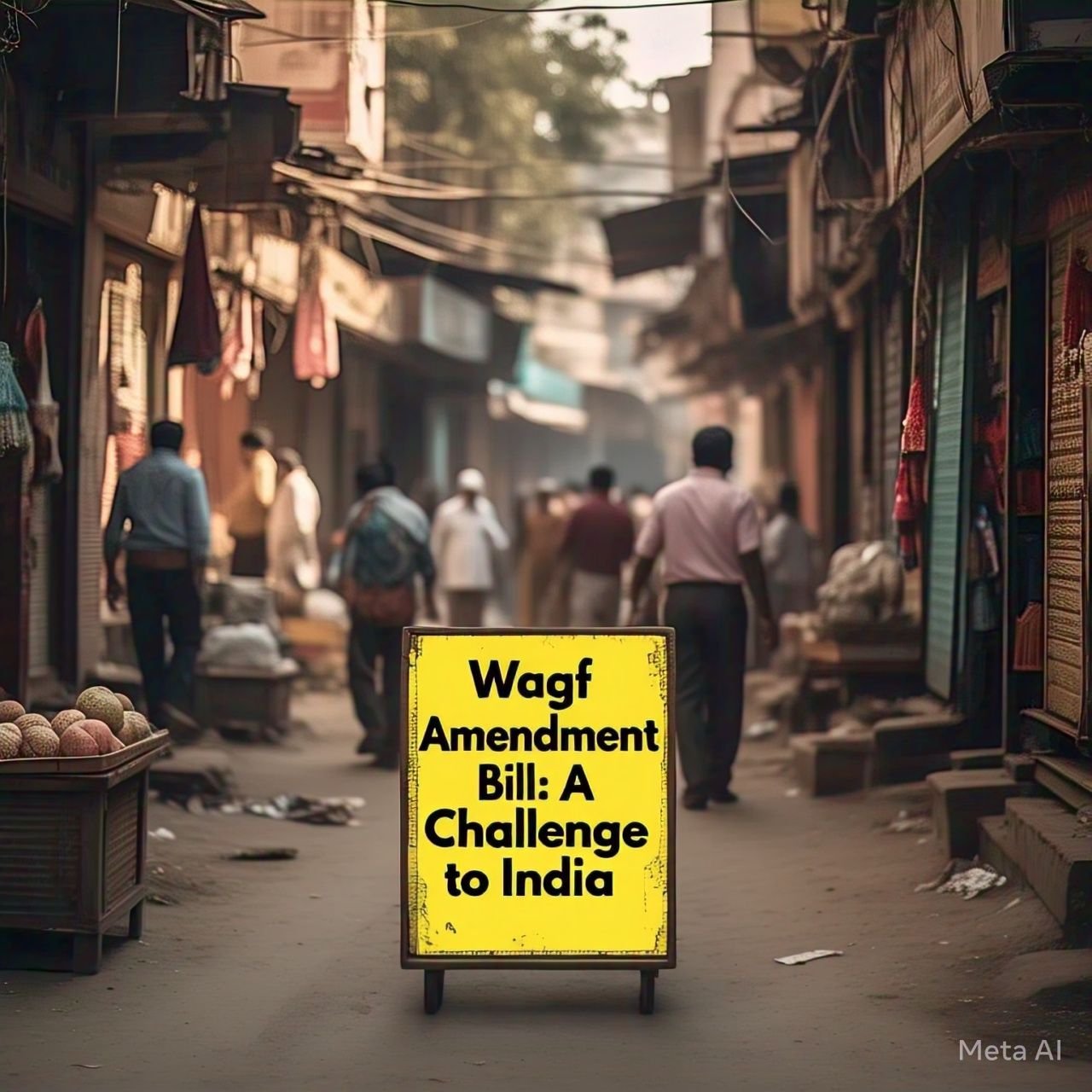
In the intricate tapestry of India's democracy, where secularism serves as both warp and weft, the proposed Waqf Amendment Bill has emerged as a contentious thread, threatening to unravel the delicate balance of religious autonomy and state intervention. The bill, slated for presentation in the Lok Sabha on April 2, 2025, has ignited fervent opposition from the Muslim community, who perceive it as an encroachment upon their religious rights and a deviation from the nation's secular ethos.
Genesis of the Controversy
The Waqf Amendment Bill seeks to restructure the governance of Waqf boards—institutions responsible for managing endowments dedicated to religious or charitable purposes in Islam. Historically, these boards have been composed exclusively of Muslim members, a structure that aligns with the religious significance of the assets they oversee. The proposed legislation, however, introduces provisions for the inclusion of non-Muslim members in Waqf boards, a move that has been met with consternation and resistance from various quarters of the Muslim community.
A Question of Religious Autonomy
Critics argue that the bill infringes upon the constitutional right of religious communities to manage their own affairs. Drawing parallels with the administration of Hindu religious institutions, they point out that Devaswom Boards, which oversee temples in Kerala, are statutorily composed solely of Hindus. The introduction of non-Muslim members into Waqf boards, they contend, represents a discriminatory double standard, undermining the autonomy granted to religious minorities. As legal expert Gopal succinctly observes, "The Waqf Bill violates this norm by inserting non-Muslims into Waqf Boards, which manage private property dedicated by Muslims as an inherent part of the practice of their religion”.
Erosion of Secular Principles
Beyond concerns of religious autonomy, opponents of the bill view it as a direct assault on India's secular framework. The All India Muslim Personal Law Board (AIMPLB) has been at the forefront of the opposition, urging Muslims to wear black armbands during the final Friday prayers of Ramadan as a symbol of protest. Such demonstrations underscore the depth of apprehension within the community, reflecting fears that the bill sets a precedent for increased governmental interference in religious affairs.
Political Underpinnings and Timing
The timing of the bill's introduction has also raised eyebrows. With the Union Cabinet clearing the bill following recommendations from a joint parliamentary committee, the ruling Bharatiya Janata Party (BJP) appears poised to push the legislation through the Lok Sabha . Critics suggest that the bill serves a dual purpose: consolidating political support among certain voter bases while diverting attention from pressing socio-economic issues. The political calculus, they argue, risks deepening communal divisions and undermining the inclusive fabric of the nation.
Government's Rationale and Counterarguments
Proponents of the bill, including Uttar Pradesh Chief Minister Yogi Adityanath, defend the proposed amendments by alleging that Waqf boards have become hubs of personal interests and are plagued by mismanagement. They argue that the inclusion of non-Muslim members will introduce transparency and accountability into the administration of Waqf properties. However, opponents counter that such issues should be addressed through internal reforms led by the Muslim community itself, rather than through external imposition that could be perceived as paternalistic and intrusive.
A Call for Dialogue and Deliberation
The controversy surrounding the Waqf Amendment Bill underscores the need for a nuanced and inclusive approach to legislative reforms that impact religious communities. Meaningful dialogue between the government and stakeholders is imperative to address concerns and to ensure that any amendments uphold the principles of secularism and religious autonomy enshrined in the Constitution. The path forward must be paved with mutual respect, understanding, and a commitment to preserving the pluralistic ethos that defines India.
Conclusion
As the Lok Sabha prepares to deliberate on the Waqf Amendment Bill, the nation stands at a crossroads. The decisions made in the hallowed halls of Parliament will not only shape the administration of Waqf properties but will also send a resounding message about the state's role in religious affairs. It is incumbent upon lawmakers to tread carefully, balancing the imperatives of reform with the sacred tenets of secularism and religious freedom that form the bedrock of India's democracy. The eyes of the nation, and indeed the world, are watching.

